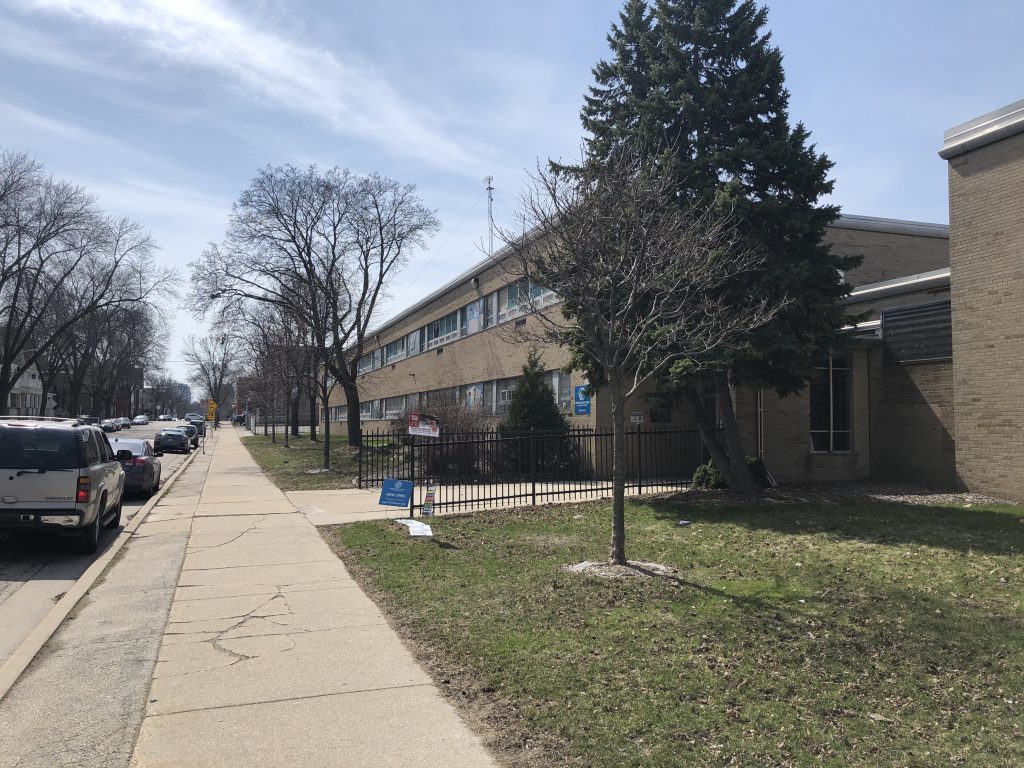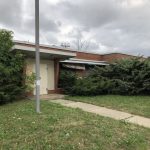Are State’s Schools Rolling In Dough?
Republican legislators think Milwaukee Public Schools getting away with something.
Wisconsin’s Republican legislators have been obsessing over the $2.2 billion in federal pandemic relief funds flowing to the state’s public schools. In recent hearings, they have repeatedly expressed the opinion that there ought to be a downward adjustment in the state education budget, because all that federal COVID relief money has left districts awash in cash.
Meanwhile, school officials, parents and public school advocates are saying just the opposite in budget hearings around the state, testifying that Wisconsin kids deserve more.
Districts face revenue limits that cap their spending on schools, and schools are struggling to come up with the money to cover federally mandated special education programs, taking more and more out of their general funds to keep up with the costs. If Wisconsin wants to stop being at the bottom among states in funding for special ed and English language learners — and stop being the worst for disparities between Black and white students — the state needs to make a long-term investment in its schools, and look at how to allocate resources more fairly.
Last week, members of the Joint Finance Committee expressed outrage that, under Title I, more money is going to districts with a high number of students in poverty than to wealthier, suburban districts.
Somehow the idea that more money would go to kids who need it most strikes them as deeply unfair — even thought that’s how Title I has worked under both Republican and Democratic administrations for many years.
“Recovery and assistance, frankly, should be focused on the kids who need help,” says Chris Thiel, legislative analyst for the Milwaukee Public Schools.
But the Republican majority in the state Legislature doesn’t see it that way. As they see it, Milwaukee is getting away with something, receiving all that federal aid.
Too much money for poor kids?
Under state law in Wisconsin, the amount of money a school district can receive through local property taxes and state aid is capped. The Milwaukee Public Schools per-pupil revenue limit means it spends a lot less money per student per year than nearby school districts.
The Milwaukee Public Schools Community Task Force pointed out in its 2019 report, “If the Milwaukee Public Schools had the same revenue limit as the School District of Brown Deer, MPS would have at least $133,000,000 more revenue this year; it would have at least $400,000,000 more for this year if it had Nicolet’s per-pupil funding.”
“It’s like the slightest gesture toward equity by the feds has our state Legislature in an uproar, because they can’t handle the idea that someone would undo the damage they’ve done,” says Heather DuBois Bourenane of the Wisconsin Public Education Network.
It’s strange to hear legislators talk about the inequity of giving more money to students with greater needs. But that’s how the conversation on federal relief money has been going in the Capitol.
Sen Howard Marklein (R-Spring Green) asked if Stanford Taylor thought it was fair that Milwaukee Public Schools received a total of $11,000 per pupil in three rounds of federal COVID relief, while the Lancaster school district in his area only received about $2,000 per pupil. And, he noted, Lancaster had been “in person in every grade every day.”
“Are you saying the pandemic impacted the Milwaukee Public Schools five times worse than it did the schools in Lancaster?” Marklein demanded.
“It’s a larger lift for a Milwaukee than perhaps a Lancaster,” Stanford Taylor said mildly.
(Lancaster’s high-achieving elementary, middle and high school serve 963 students, 39% of whom are economically disadvantaged. Milwaukee Public Schools serve 75,431 students, 83% of whom are economically disadvantaged.)
The truth is, DPI tried to do something for districts that didn’t qualify for relief under the federal Title I formula. The state education department offered a budget proposal that set a floor of about $300 per student in districts that qualified for little or no federal aid, from the 10% of the federal COVID relief money the state controls. But the Joint Finance Committee threw out that plan and replaced it with a rule that makes the money available only to districts that met in-person during the pandemic.
Punishing schools that held virtual classes
That rule ignores the fact that schools that used virtual or hybrid learning to try to control the spread of COVID-19 still had to pay staff, and in some cases had new expenses, including home visits, new Chromebooks, and complicated in-person-plus-remote classroom instruction for hybrid learning.
“This idea that it doesn’t cost anything when schools are closed is absurd,” says Dubois Bourenane. “And the idea that you can reopen safely after a pandemic without making adjustments is equally absurd.”
Pitting school districts that had hybrid or all-virtual learning against districts that remained open in-person “is creating predictable frustrations and making these funds competitive in ways that they really didn’t have to be and shouldn’t be,” DuBois Bournenane adds. “If the idea is to incentivize, well, it’s too late. Incentives come before decisions are made. You’ve just punished a significant portion of Wisconsin’s children for something entirely beyond their control — and at their greatest moment of need. How good do you feel about that?”
Perversely, the Legislature has continued its reverse Robin Hood act during the pandemic, taking money from poor kids in public schools and transferring it to wealthier districts and private schools. Last week, there were hearings on a bill that would retroactively charge the Milwaukee Public Schools millions of dollars to cover the costs of transportation for private school families whose schools remained in session during the pandemic.
Public funds for private schools
Thiel testified at the Senate hearing on the bill that MPS did not believe it had to pay for private school kids’ transportation when public schools were closed for most of the year. But, he said, he hoped that the two sides could get together on a 100% reimbursement from the state for transportation costs. As it is, Milwaukee Public Schools are reimbursed for only $270,000 of the $2.6 million they spend each year transporting private school kids.
Sen. Jeff Smith (D-Eau Claire) was moved by those numbers, and pointed out that rural districts are in the same sort of jam with transportation costs. He suggested people from urban and rural areas might get together on getting the state to cover transportation costs — an idea that better reflects the mood of citizens who have been testifying at budget hearings than legislative efforts to punish MPS.
Getting the public schools out of the business of transporting private school kids altogether would make a lot of sense.
For example, of the $55 million in CARES money the Milwaukee Public Schools received from the federal government, $15 million went to private schools. And that’s on top of millions in PPP money private schools applied for and received, that public schools were not eligible to receive.
Unfortunately, all discussion of public school spending has become intensely politicized in Wisconsin.
“The sort of language that some of the lawmakers have been using to describe the governor’s budget is extremely offensive and alarming,” says DuBois Bourenane, “calling it a ‘liberal wish list’ or a ‘Democrat Christmas.’” Yet the proposals in Evers’ budget are the same ones public school advocates have sought for the last decade, and match the recommendations of the bipartisan blue ribbon commission on school funding, she points out.
The most significant among these is the proposal to restore the state’s commitment to fully funding special education costs, so that districts don’t have to drain their general funds to cover those costs. “It’s a billion dollars a year that goes back into classrooms that restores programs that have been cut, that allows schools to have art and music and phy ed,” she says. “It’s just such a no-brainer.”
As difficult as the budget discussion has been, DuBois Bourenane and Thiel both sound hopeful about finding common ground and making progress.
If the Joint Finance Committee sticks to its plan to throw away Evers’ budget and start over, education advocates still hope to persuade Republicans to do the right thing for public schools. Public pressure at the handful of budget hearings — including the one last week at the Hodag Dome in Rhinelander, and this week’s virtual hearing — are important, DuBois Bourenane says.
‘This is what help looks like’
“As challenging as it has been to get to these strange and remote hearings this year, it is really important to us to make sure that we’re tracking the testimony and paying attention to what people are standing up to ask for,” she says.
She is hopeful that Republicans and Democrats alike will respond to their constituents’ demands for mental health funding, for more help for rural districts with huge transportation costs, and for doing something about revenue caps that local voters have chosen to override again and again in referenda, voting to tax themselves more to pay for their schools.
“It seems like even though Republicans keep saying they don’t like the governor’s budget, when you ask what they do want for education, they list the things that are in it,” she adds. “So maybe we will see some of those things.”
“Biden is helping,” Thiel points out. “This is what help looks like. And people like it.” State Republicans, on the other hand, seem committed to the non-helping model of governing, whether it’s turning away $1.6 billion for Medicaid expansion or the lawsuit Republican legislative leaders filed against Evers challenging his ability to spend federal funds to help Wisconsin recover from the pandemic.
As Evers put it on WISN’s Up Front Wisconsin over the weekend, when he was asked about the suit, “If they want to spend their time messing around with this, they’ll be spending taxpayers’ money to prevent taxpayers from getting money.”
“I’m just curious how long people are willing to be the worst, without getting embarrassed,” says DuBois Bourenane. “Can we please not be the worst in the nation in this category anymore? It’s awful. Let’s just stop being the worst for special ed, let’s stop being the worst for funding English language learners. And let’s stop being the worst for Black and white disparities.”
“It seems like a really low bar that we could meet,” she adds, “ if we just had the tiniest bit of political will.”
Reprinted with permission of Wisconsin Examiner.
Op-Ed
-
Wisconsin Candidates Decry Money in Politics, Plan to Raise Tons of It
 Dec 15th, 2025 by Ruth Conniff
Dec 15th, 2025 by Ruth Conniff
-
Trump Left Contraceptives to Rot; Women Pay the Price
 Dec 8th, 2025 by Dr. Shefaali Sharma
Dec 8th, 2025 by Dr. Shefaali Sharma
-
Why the Common Council’s Amended Budget is Good Policy for Milwaukee
 Nov 20th, 2025 by Alds. Marina Dimitrijevic and Russell W. Stamper, II
Nov 20th, 2025 by Alds. Marina Dimitrijevic and Russell W. Stamper, II























Same Republican/conservative/WILL response to aid to POC farmers!!! Got to be equal!!! Equity vs equality!! They like to rouse up their base with such controversies…brings in the money and the votes against those POC’s that are trying to take over OUR country.